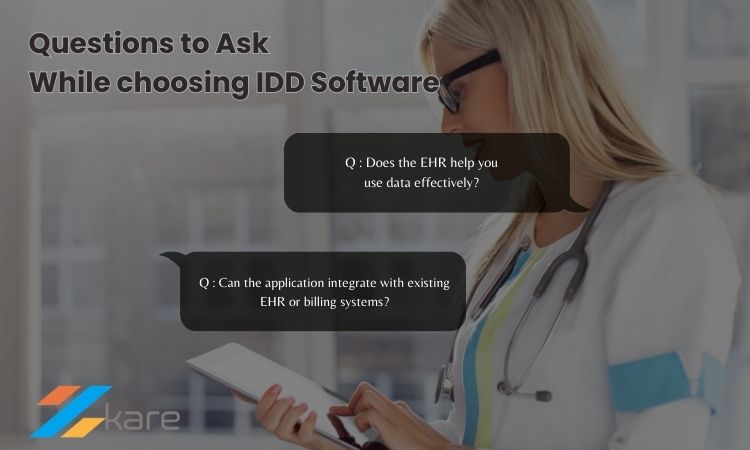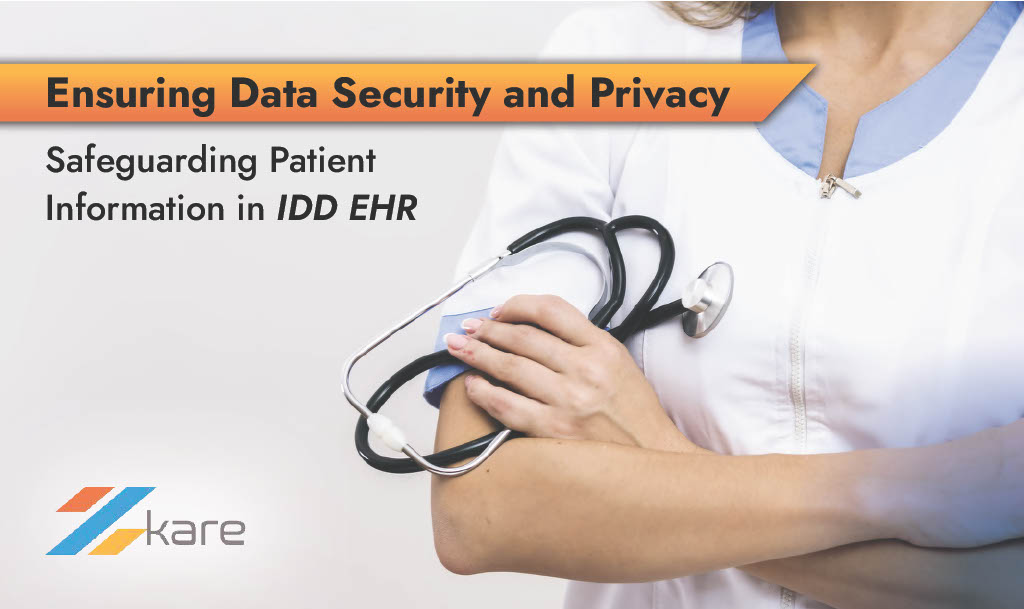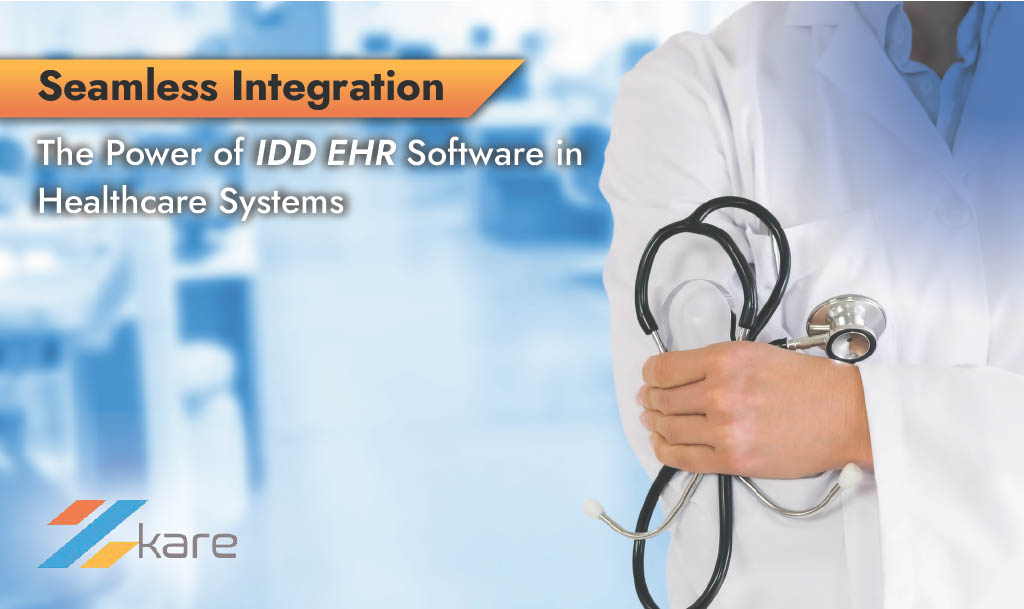
IDD
Selecting the right developmental disabilities provider applications is essential for businesses and individuals working in the field of developmental disabilities. This specialized software is vital in supporting people with developmental disabilities by providing tools and features that improve care delivery, track advancement, and streamline administrative tasks.
However, with many possibilities available, asking the right questions when evaluating different software solutions is crucial. Here are some of the questions to ask when choosing developmental disabilities provider software:
What particular benefits does the software offer for assisting individuals with developmental disabilities?
Look for applications that cater to the particular requirements of individuals with developmental disabilities. For instance, behaviour-tracking functions can help track and evaluate behavioural patterns, allowing caregivers and professionals to determine trends and begin appropriate interventions.
Goal-setting features allow the establishment of customized objectives for individuals, enabling skill growth and advancement tracking. Medication management features can assist with organizing and administering medication schedules efficiently. Scheduling tools help with coordinating appointments, treatments, and activities. Communication features allow effortless cooperation and information sharing among caregivers, professionals, and administrators.
Is the software customizable to meet the specific demands and requirements of our organization and the people we serve?
Ensuring the software can be tailored to align with your organization’s processes and individualized care plans is essential. This may involve creating forms, evaluations, templates, or terminology to match your company’s tone and processes. The ability to set up the software to meet your particular needs ensures more seamless integration into your existing procedures and improves its usability for your team.
Does the software offer extensive records and reporting abilities for tracking individual progress and results?
Look for an application that offers robust records and reporting capabilities. This may include characteristics like progress notes, incident reports, evaluations, and outcome measurement tools. The application should enable effective documentation of individual progress, behaviour observations, treatment plans, and occurrences.
Additionally, it should include reporting tools that let you create in-depth reports, examine data trends, and track results to support decision-making and quality improvement initiatives.
How does the application manage sensitive personal information and guarantee data security and privacy?
When selecting software, data security and privacy are essential considerations. Ensure the software provider follows business standards for data protection. This involves using encryption to secure data during storage and exchange, establishing access controls and user permissions to limit access to authorized individuals, executing regular data backups to prevent data loss, and adhering to relevant privacy regulations such as HIPAA. In addition, consider whether the software enables audit trails and data logs to track user actions while maintaining accountability.
Can the application integrate with existing electronic health records or billing systems?
Evaluate whether the application can integrate effortlessly with your existing systems, like electronic health records (EHR) or billing systems. Integration capabilities enable simplified processes and data exchange, removing the requirement for duplicate data entry while decreasing the potential for errors.
Compatibility with current systems can boost effectiveness, enhance data accuracy, and encourage continuity of care across your organization’s operations.
What training and support does the software provider offer to ensure successful implementation and ongoing use?
Ask about the training and support offered by the application provider. This includes onboarding assistance, instructional content, and access to an assist desk or customer support. Proper training and ongoing support ensure seamless implementation and address any problems or questions arising during the application’s use.
Does the EHR help you use data effectively?
Electronic Health Records (EHR) can help healthcare providers use data efficiently. EHR systems allow the collection, storage, and analysis of vast amounts of client data. This information can be used to identify trends, track clients progress, and make informed decisions about care plans. By using the data within EHRs, healthcare providers can gain valuable insights, enhance patient care, and improve overall healthcare outcomes.
Does the EHR streamline managed care and compliance?
Electronic Health Records (EHR) can streamline managed care and compliance processes. By digitizing and centralizing client information, EHRs can enhance communication between healthcare providers, improve administrative tasks, and help ensure compliance with regulatory requirements. This efficiency can ultimately lead to better managed care and boost client outcomes.
Does the EHR simplify revenue collected and accommodate different payment models?
Electronic Health Records (EHR) can assist in simplifying collecting revenue and support different payment models in healthcare settings. By streamlining client data, billing, and claims processing, EHR systems can enhance effectiveness and precision in revenue management. Additionally, they can adapt to various payment models, such as fee-for-service, value-based care, or bundled payments, enabling the billing and reimbursement process for healthcare providers. However, the extent to which an EHR system encourages different payment models can differ based on the specific software and its capacity.
Is your software built specifically for those delivering IDD services?
IDD service-specific applications are essential as traditional EHRs cater for broader clinical services, overlooking the unique requirements of IDD service providers. Unlike medical clients, individuals getting IDD services have longer-lasting relationships with customized plans expressing their life plans.
Therefore, it is crucial to collaborate with a supplier offering an EHR explicitly intended for IDD workflows, compliance considerations, forms, and dashboards that satisfy the particular requirements and priorities of IDD service providers.
What is the pricing structure for the software, and are there any additional costs for updates, upgrades, or support services?
Understand the pricing model for the software, whether it is a one-time investment, a subscription-based model, or if there are any extra costs for developments, upgrades, or ongoing assistance services. Evaluate the long-term expenses and ensure that the pricing aligns with the software’s value and advantages to your organization.
Final thoughts
By understanding these above-mentioned points, you can gain a better knowledge of how the software addresses the particular needs of individuals with developmental disabilities, aligns with your organization’s needs, supports records and reporting, ensures privacy and security of data, and integrates with existing systems. These elements are essential when choosing a software programme that optimizes healthcare delivery and improves organizational, and operational effectiveness.


